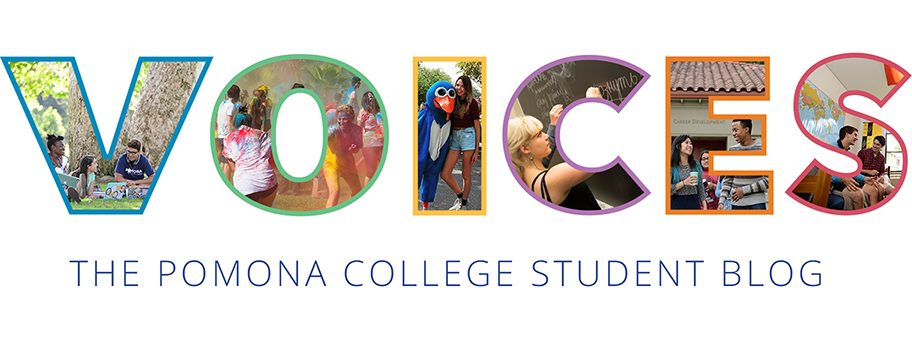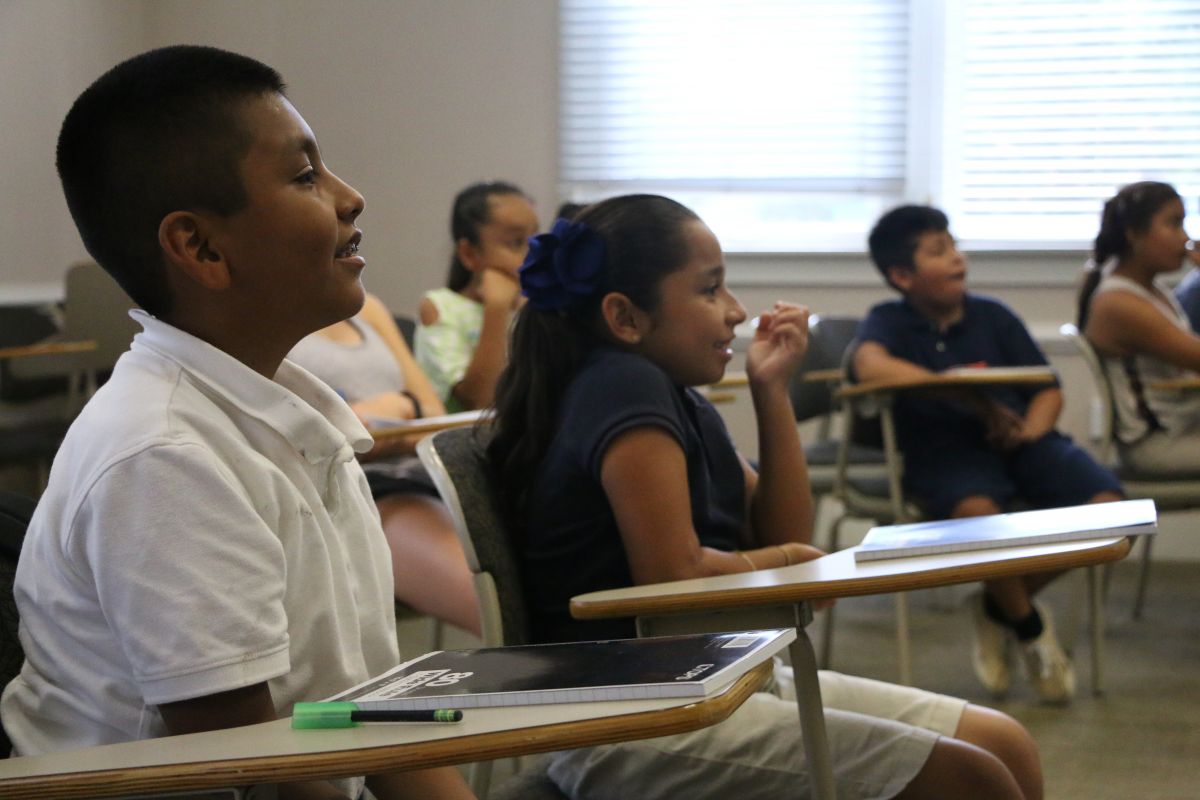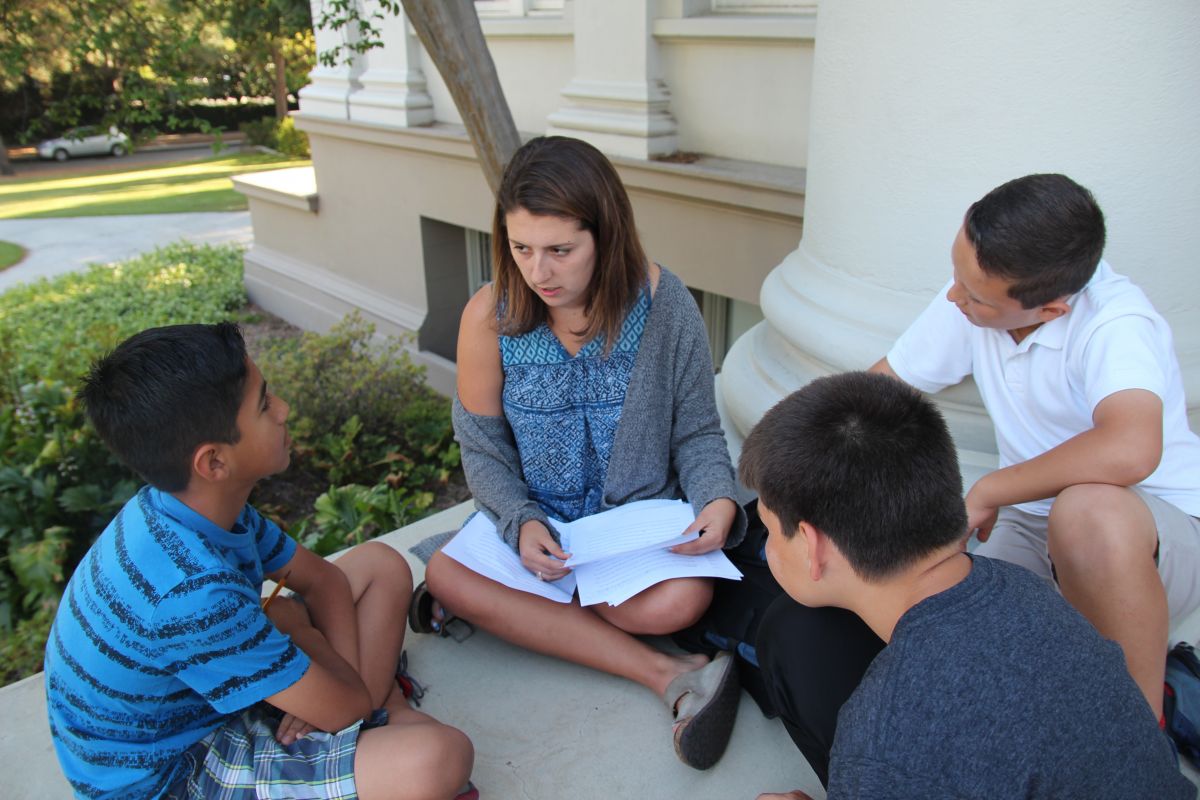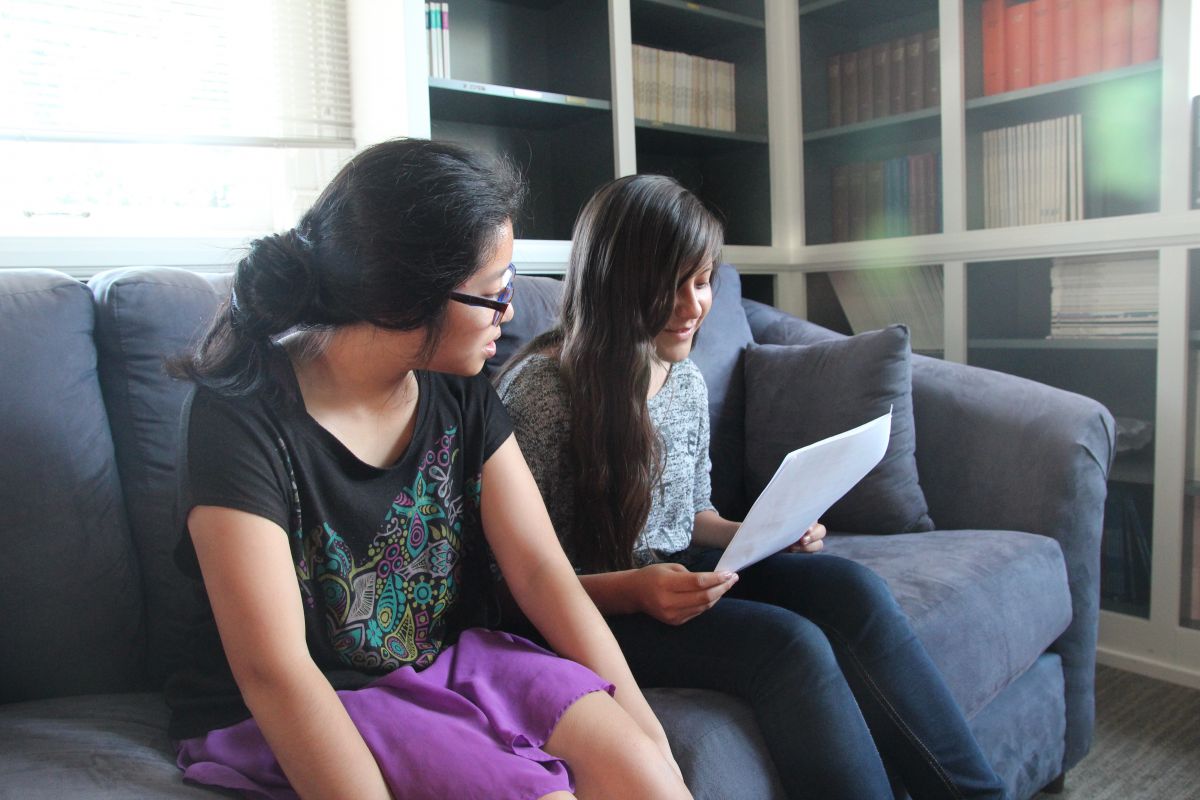I spend my Monday afternoons in Carnegie 107, a classroom which normally feels cavernous and academic. The seats are neatly arranged in rows, stretching eight or nine rows back. There is a podium in the front of the classroom, from which a professor would deliver a lecture about U.S. foreign policy or econometrics.
But at 4:30 PM each Monday, fourth and fifth grade students bound in and disrupt the order. Their parents and siblings flood the quiet lobby with conversations in Spanish. We push the rows of desks aside and form clusters, where two to three students sit with their college mentors. We sit on the floor and read out loud. This is the Weekly Writing Workshop.
The Weekly Writing Workshop (3W) has existed at Pomona since 2013, and I have been involved with it for the last two years. Started by two Pomona students (now alumnae), its mission is “to empower students from low-income communities by strengthening their technical writing skills and creative expression through in-depth, individualized feedback.” This year, there are three sections of 3W: 4th-5th grade, 6th-7th grade, and 8th-9th grade. Each section has two coordinators and eight to ten college mentors. The mentors work directly with a small group of students to engage in class activities and develop their writing.
I have been a mentor, but for the last few semesters, I have worked as a coordinator for the 4th-5th grade section. I work with my co-coordinator, Paola, to recruit, train, and meet with mentors, partner with local nonprofits, create an engaging curriculum and weekly lesson plans, and lead our two-hour class sessions each Monday.
This semester, we chose a theme: “Around the World.” Each class, we focus on a culture from somewhere around the world, from Tanzania to Poland. And for the last 20 minutes of each class, we read a chapter book of Chinese folktales. We chose this theme because our students, if not immigrants themselves, come from immigrant families. We want them to recognize and value their own heritage. When we learn about mythical creatures, our students bring up el chupacabra. When they write about what they eat on their favorite holidays, they say tamales and pozole.
3W is challenging. Although we all have a shared passion for creative writing, most college students involved with the program, myself included, do not come from the same background as the students. Our college mentors feel comfortable among the stately columns and lecture podiums of the Carnegie building, while this place is often totally foreign to our students and their families. And yet exchanging spaces and experiences with the local community is so critical. I smile every time I see our fourth and fifth graders running up and down the Carnegie steps, disrupting the solemnity of this academic institution. I’m proud of our mentors when they overcome their uneasiness and pick up the phone to call their mentees at home, knowing they might reach someone who does not speak English.
The stories our students write involve dragons, talking potatoes, invisible men, and Katy Perry. They make us laugh constantly. I really believe the Weekly Writing Workshop is doing important work in the community, and while it would be easy to get weighed down by this, I always leave Carnegie 107 feeling much lighter and more inspired than when I came in.



